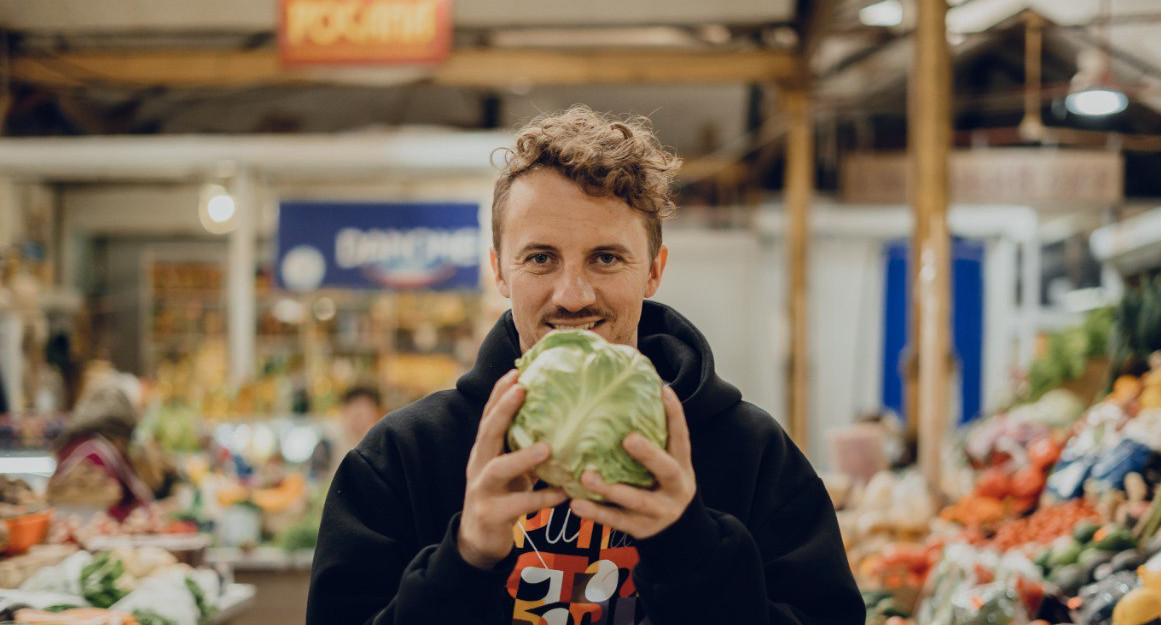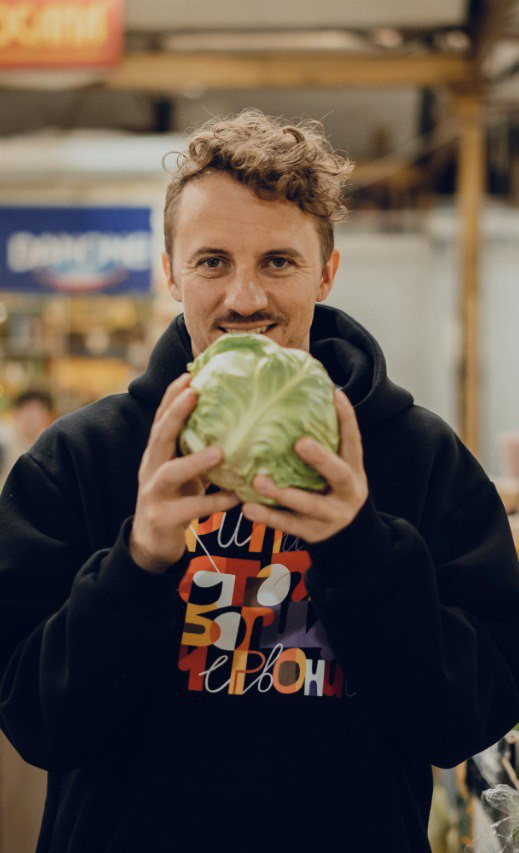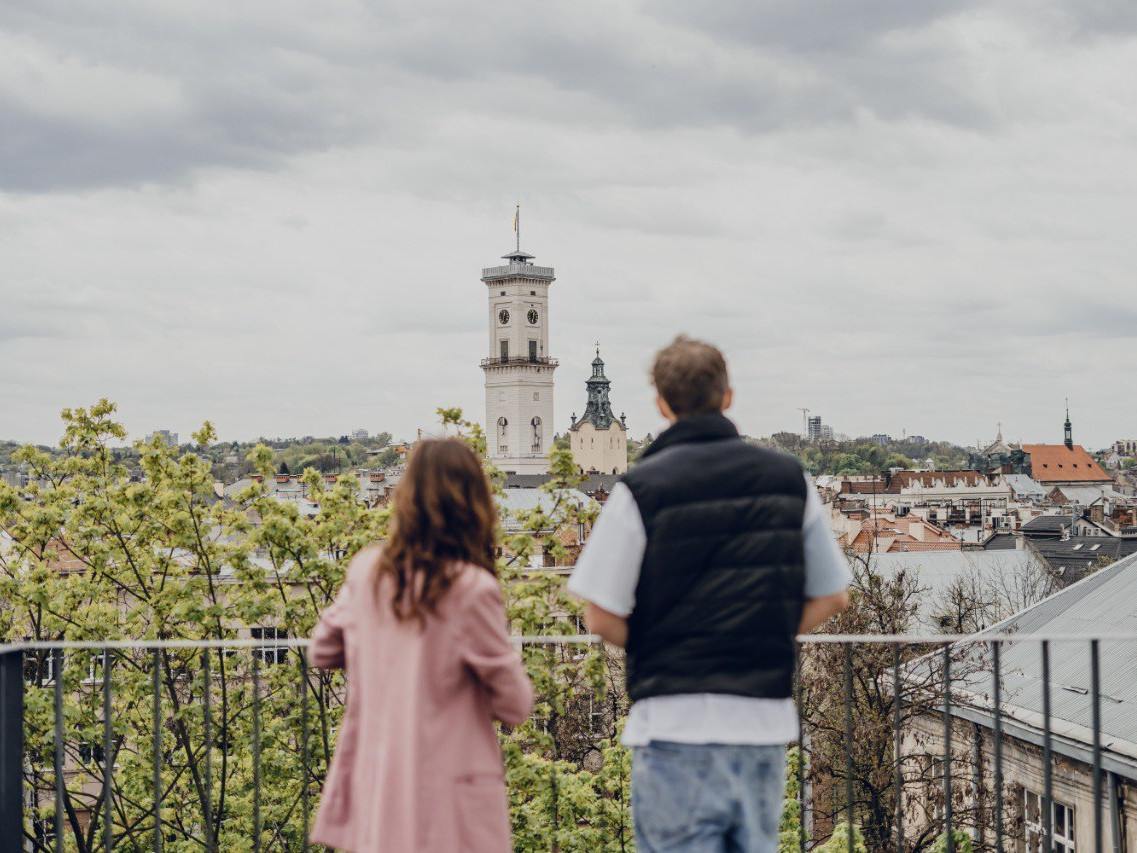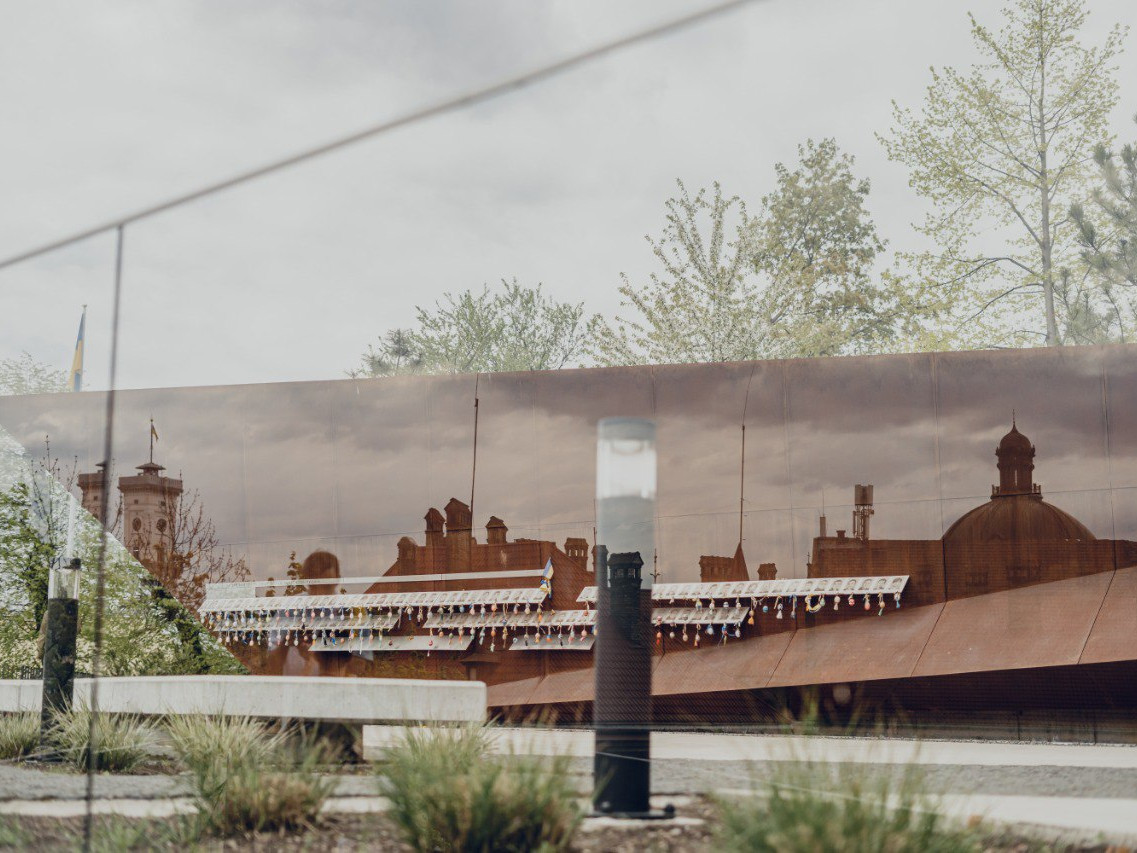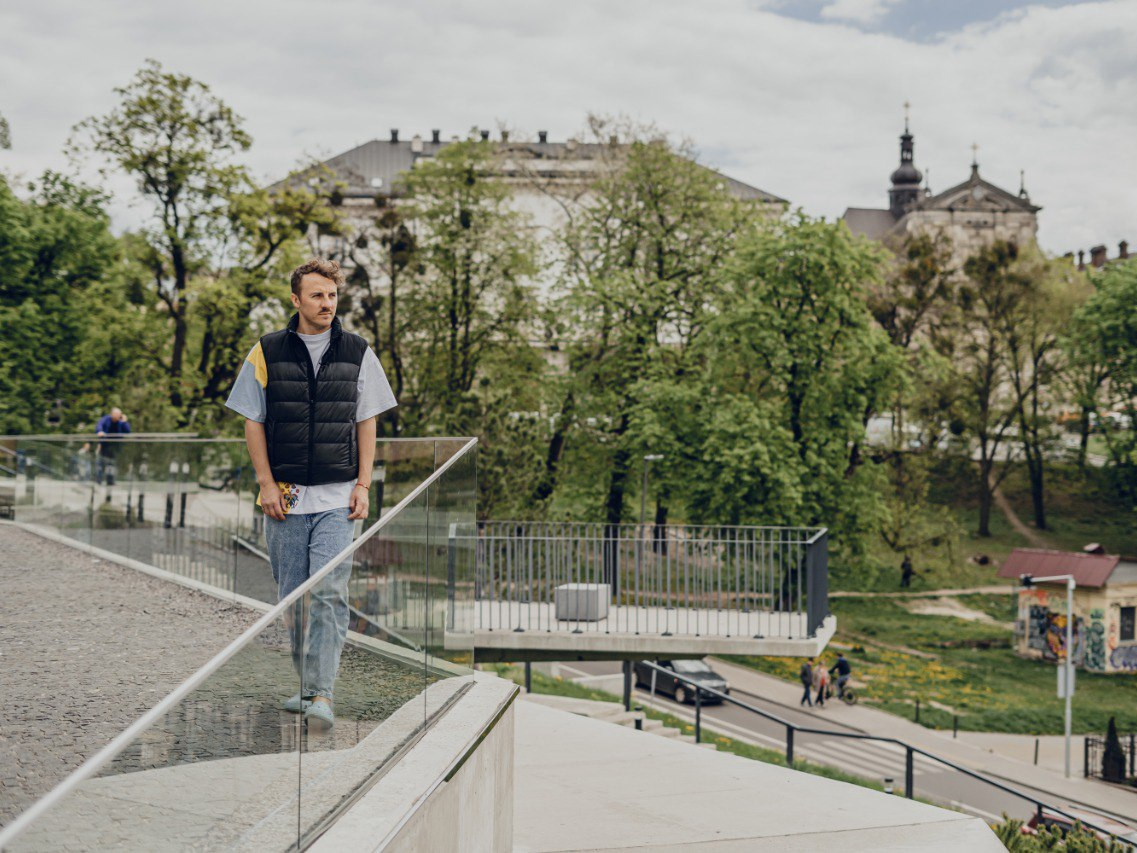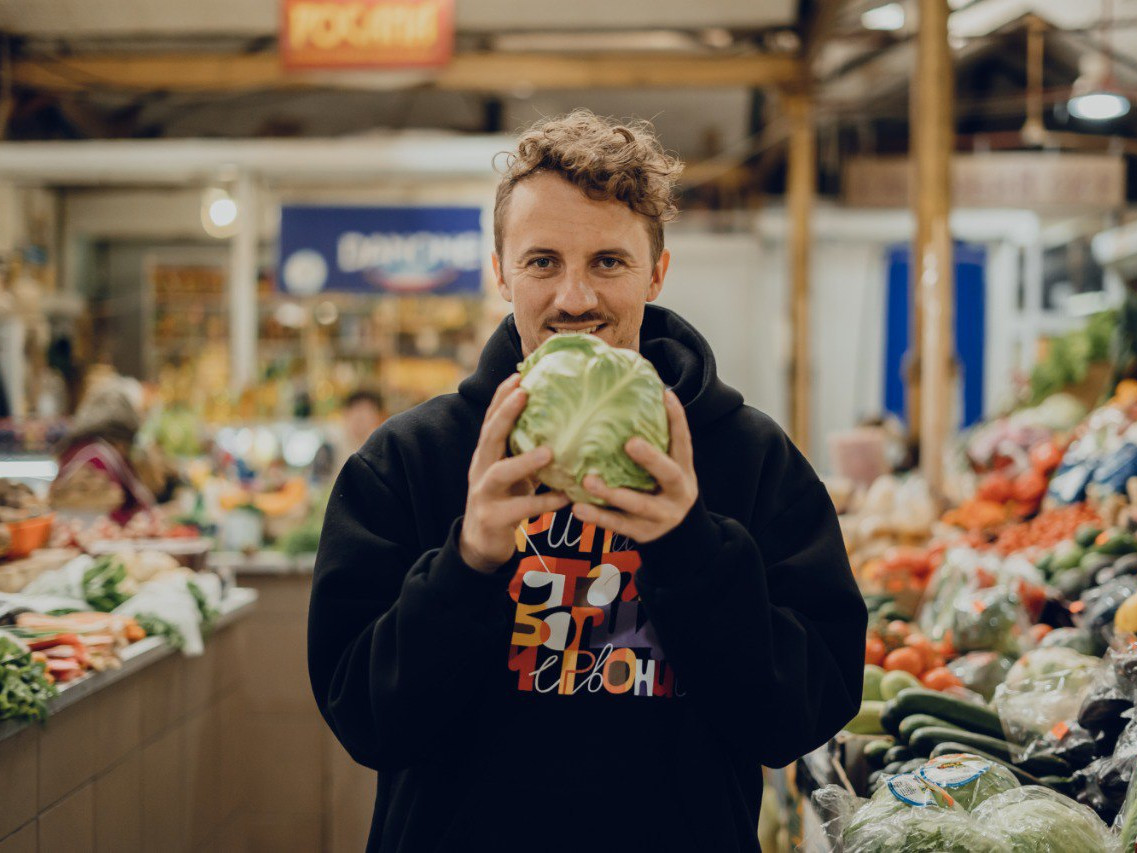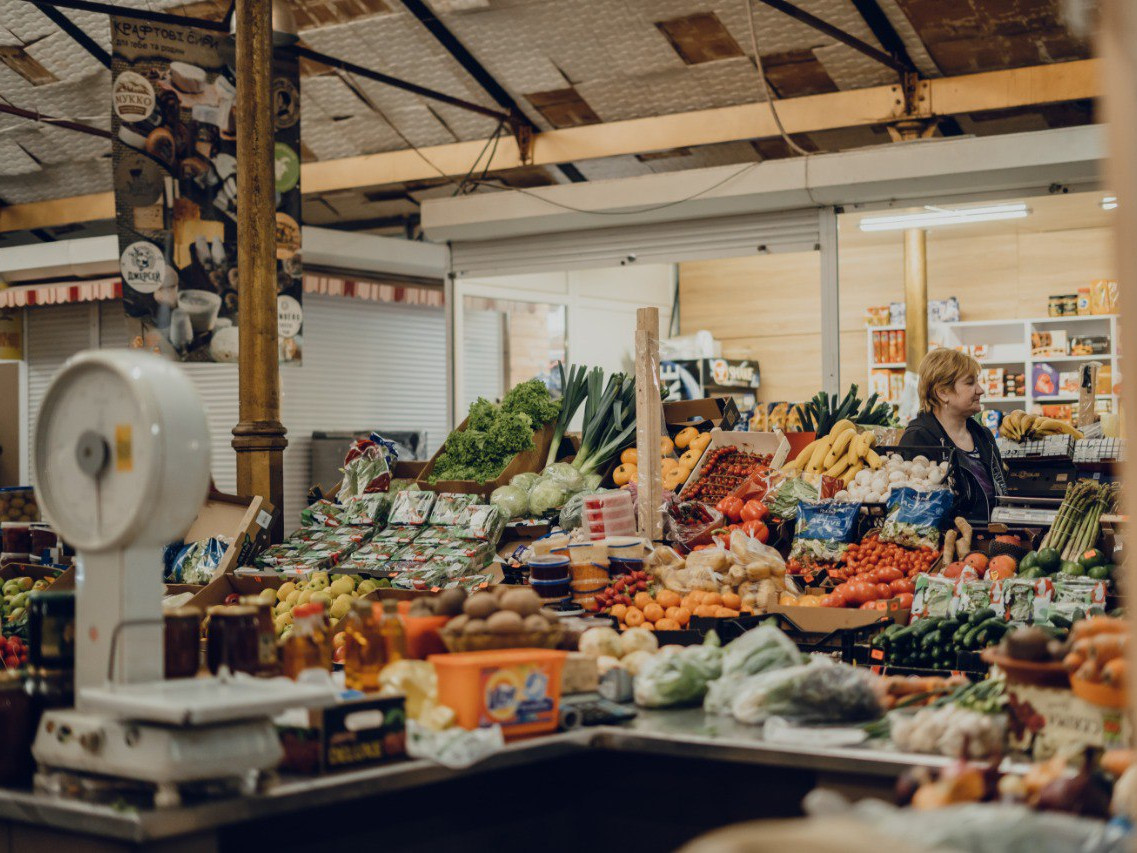Many Ukrainians associate the name of Yevhen Klopotenko with borshch. And this is no accident. After all, Yevhen is one of the promoters of Ukrainian cuisine, including borscht in the world cultural and culinary arena, the initiator of its inclusion in the intangible heritage of UNESCO, a Ukrainian culinary expert, chef, businessman, and TV presenter.
He is also the founder of the social project "New School Nutrition" to change the culture of nutrition "Cult Food", co-founder of the restaurant "100 rokiv tomu" ("One Hundred Years Ago") and the new restaurant "INSHI" ("OTHERS") in Lviv, and author of popular Ukrainian culinary site klopotenko.com.
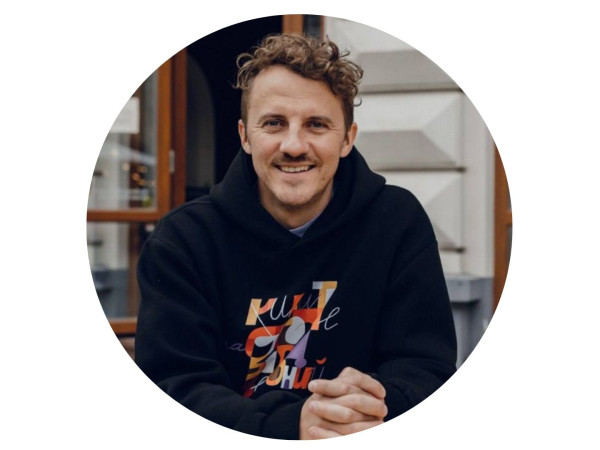
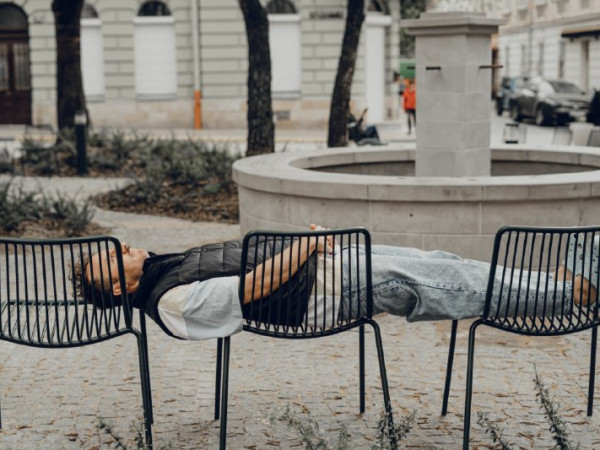
ABOUT LVIV
One spring day, we walked the streets of Lviv with Yevhen Klopotenko.
See how it all happened in the video and read the article below.
"I came to Lviv for the first time during a school excursion. It was about class 7 or 8. We got on a big train and arrived in Lviv. It was my first time, and it was very unusual. Actually, it was the first of the big cities in Ukraine (after Kyiv), where I went for the first time.
Even then, I was attracted by the city atmosphere, which I had never seen before.
This atmosphere has remained until now.
You can go to Krakow or other cities abroad that are visually similar and have architecture from the times of the Austro-Hungarian Empire. But there is a different energy.
Now in Lviv, I am researching culture and Galician cuisine. And the more time I spend here, the more I will understand why it looks like Europe, but differently.
I travelled a lot in the cities. And I don't like taking pictures of places. I like to feel the energy, to feel some pieces, to remember it later. For me, all cities are only about energy.
In Lviv, I feel warm, soulful, and good energy. The architecture here is so cool that I can just sit on the steps and look up at the city.
And you will not see this perspective differently, that there are books and things somewhere ... And when you squat, you can feel and see the city in a completely different way.
Lviv is like a "syrnyk" (cheesecake) for me, but it should be moist because there is a lot of rain here. And with coffee jam. That is, you take coffee jam, pour syrnyk, and when you touch it, it is so wet. And there must be an aftertaste of the earth. Because when the rain is over, you feel such an earthy scent. That's why syrnyk with earthy aroma and coffee jam is something I associate with Lviv".
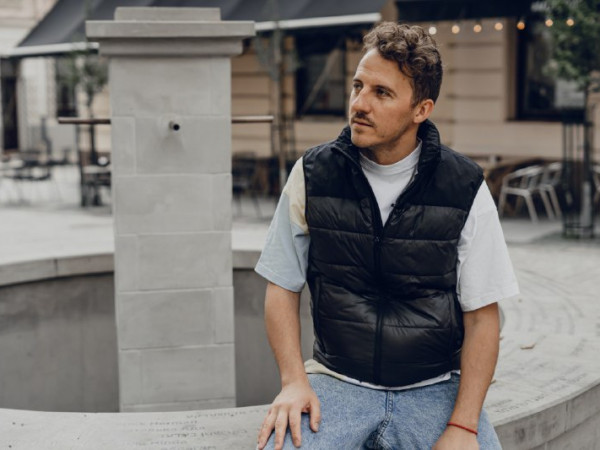
Koliivshchyny Square
I still remember her being so old before the restoration. Then there was such a colourful and painted little bus. And now everything has become so different, and I like her.
It so happened that I live in Lviv in the central part of the city, and I like it. I also live in the centre of Kyiv, and for me, it is comfortable and well.
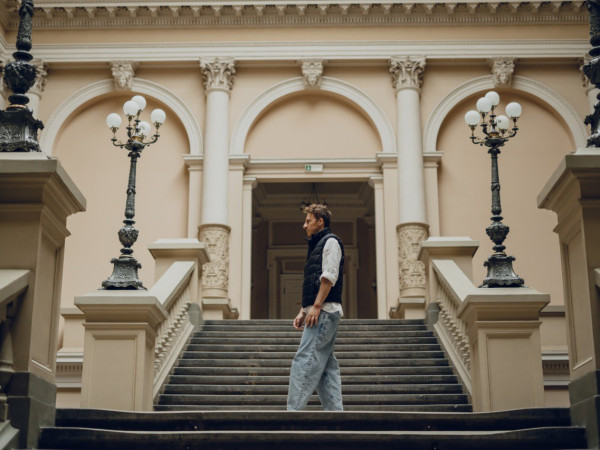
Lviv National University of Ivan Franko
When we opened "INSHI", a man approached me and said: "Yevhen, my phone is discharged. Do you know where Franko University is? " I say, "I don't know. And what is there? "
And he answers me: "It's very beautiful there." After that, I asked people, and they told me that it's nice there and you should go there and see it.
So I promised myself that one day I would visit there. And finally, I got here. Franko University is a majestic building for me, which is so different. As beautiful and atmospheric as everywhere in Lviv.
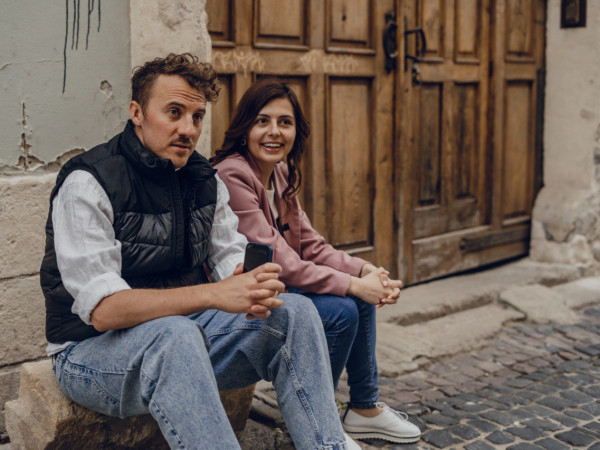
Potocki Palace
I often visited this palace, especially at the Book Forum Lviv, where I presented my book. When I saw this place, I wanted to make dinner there. I used to do this at the Lviv Philharmonic; it was my best dinner in Lviv. After I saw this place, I wanted to have a dinner party here in peacetime.
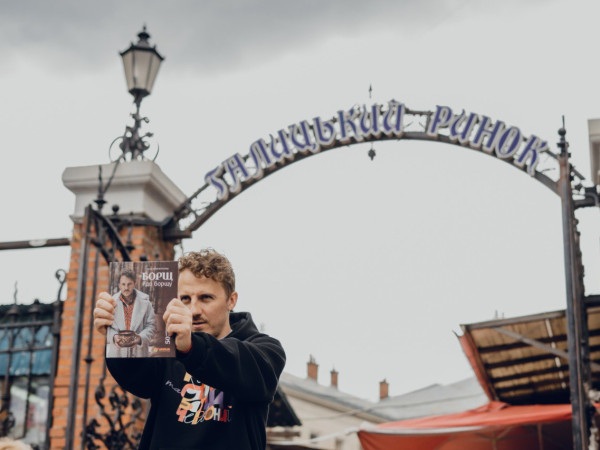
Galician ("Halytskyi") Market
It is the first market in Lviv, where I came and bought radish and other ingredients. And now my employees continue to buy food here.
Some go to museums, some go to cathedrals, and I go to the bazaar and talk to beets, carrots, and potatoes. So I go and ask: “How are you? How are you? How are you?".
I am very pleased with this - it inspires me. In the market, I spend several thousand hryvnias every time. But this is my field. Sometimes it seems to me that I was born in the market (laughs).
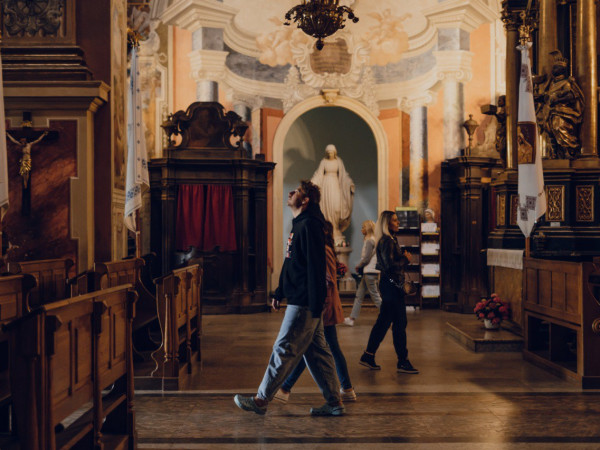
St. Andrew's Church
She is closest to my restaurant "INSHI", and I often admire her from my windows. Generally, I was very lucky to have a restaurant near the market and such a beautiful church. By the way, today I visited here for the first time; this is the first church in Lviv, which I have been to for the last two months.
ABOUT GALICIAN CUISINE
I deeply study Ukrainian cuisine, in particular Galician. After all, Galician cuisine is the best preserved. Most books and traditions have survived because the Soviet Union took the least from them.
And when I started to study Galician cuisine in-depth five years ago, that's how my first meeting with the "Galician language" took place: “rondli”, “kakhli”, “andruty”, “ramarnia”...
I cooked all the dishes of Olha Franko, Dariia Tsvek and reread all the books by Ihor Lylo.
I can argue with Galicians about Galician cuisine, although I don't seem to look like a Galician. But I know a lot: about approaches, cooking techniques, and dishes.
But what interests me most is Boyko and Lemko cuisine, because they have hardly changed.
When I found "huslianka", "oshchipok", "lezhni", "kysylytsia", fine "brynza", I realized that these and many other dishes are like nowhere else in the world.
And I am working to launch "huslianka" (a traditional Carpathian sour milk product, ed.) Into mass production so that every Ukrainian can taste it.
I have already added some dishes to the menu of my restaurants.
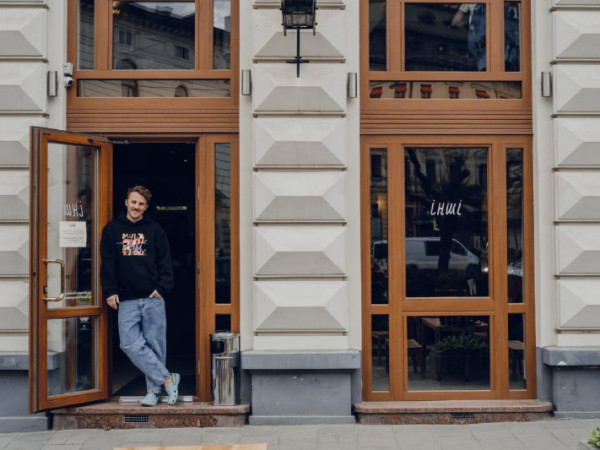
ABOUT "INSHI"
Initially, I planned to open a new restaurant in Kyiv. But, unfortunately, there was no free space. That's why I thought, why not try to open a restaurant in the west of Ukraine, because here I am treated quite loyally.
These thoughts arose before the war, and when it began, they did not go anywhere. So I decided to come to Lviv. Coincidentally, the war hastened my decision.
Any room, any business that I do is always shaped by energy. When I found a room in Lviv, it turned out that 25 years ago, there was an old cafe here, which many Lviv residents visited.
And here we realized that we need to take a restaurant that has a huge history and just continue it. In my opinion, it's great.
WHY "INSHI"?
I plan to develop the "INSHI" brand in different cities of Ukraine, in Ivano-Frankivsk, Rivne ... And outside Ukraine as well.
Why the name "INSHI"? It's like "100 rokiv tomu". When a person wants to say something, for example, that something was a long time ago, he will say - "100 years ago it was…". This is a ready-made phraseology.
As for "INSHI", this word began to be used in this context and has significance. Because we are different from this old system, we are different from everyone in the world, and we are unique ourselves.
And that's why we named the restaurant "INSHI" because we are different and show different Ukrainian cuisine. Because when we say that Ukrainian cuisine is borshch, varenyky and salo, in the "100 years ahead", we are reviving it.
And here (in the restaurant), we combine at a modern level what we can combine. Therefore, there will be a different Ukrainian cuisine. There must be meaning in everything, it may not be clear to everyone, but it is mine. And if you make sense, it becomes clear to everyone.
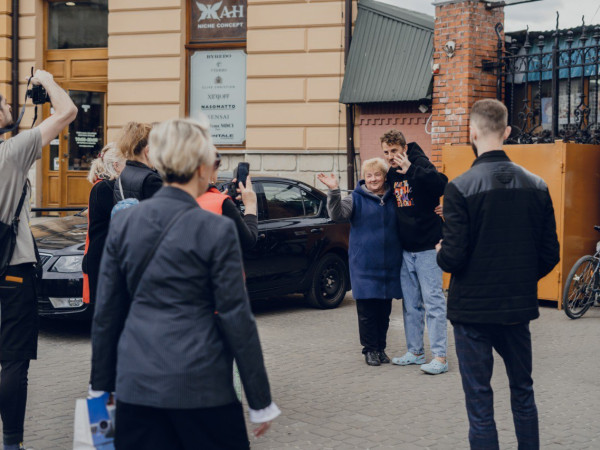
ABOUT VOLUNTEER ACTIVITIES
Now is the time to do something for free. And I feel the highest level of satisfaction when I feed people (IDPs) for free.
These are people like me. If the missiles hit my restaurant or house and I had to move, I would move. I would be confused: I would not know where to live, what to do. Therefore, these people are like us. But such a situation occurred in them. And now I feed them for free because they need it.
"No rain and no missiles will affect my love for Lviv"
Video - Andrii Stukhliak, Skyway Production
